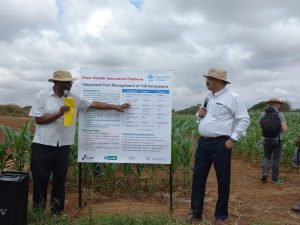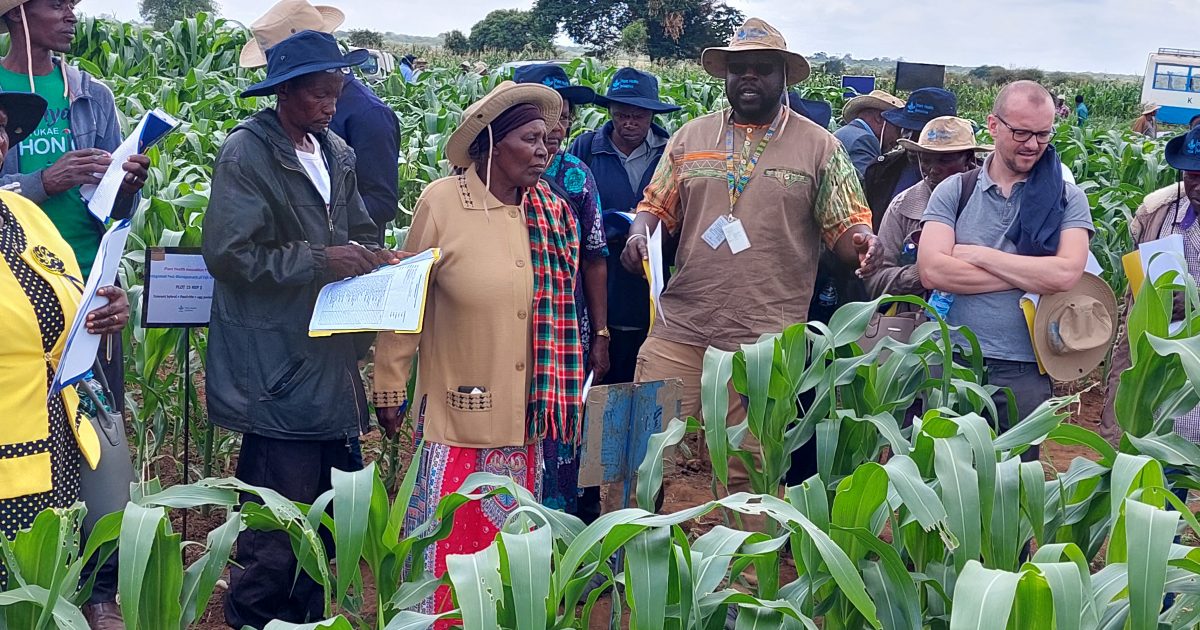The government has partnered with multinational research organizations to develop an eco-friendly pest management technology to contain the spread of fall army worms in the country.
The project which is fronted by the International Maize and Wheat Improvement Centre ( CiMMYT), Kenya Agricultural and Livestock Research Organization (KALRO) and ICIPE is on trial phase at Kiboko field station in Makueni County and is expected to be concluded by February next year.

Dr. Prassana Boddupalli- Director Global Maize programme at CiMMYT said the Integrated Pest Management (IPM) was to encourage farmers in Sub Saharan Africa and Asia where the outbreak of the fall army worm devastated their yields to adopt less toxic and affordable ways of containing the invasive pests.
“We want farmers to dissociate from application of synthetic toxic pesticides and chemicals but revert to use of combined approaches like use of resistant varieties, bio pesticides and related biological control methods that are environmentally friendly” he said.
Boddupalli told farmers during a visit at the research stations where the viability of naturally tolerant varieties of maize from Mexico were being tested that scientists were experimenting the foreign seeds to establish their resistance to tropical pest and diseases.
He said preliminary assessment at the research station indicated that at least two or three of the resistant varieties may be approved once the regulator certified the recommendations from the project.
KALRO lead agricultural Entomologist Paddy Likhayo said since the outbreak of fall worms was reported in the country in 2016 the maize yields dropped by between 30 – 50% further aggravating the already fragile food security in the country.
He said at least 80 farmers across the country were enlisted in the validation of the project to scale up extension services and sure that agronomic practices including the yet new integrated pest control technology was adopted within one year.

Head of Technology Transfer Unit at International Centre of Insect Physiology and Ecology (ICIPE) Saliou Niassy, said the organization had also recommended the use of prey insects to control the spread of the invasive worm by introducing parasitic species that fed on their lava.
“We recommended environmentally friendly solutions including the push pull technology and the intercropping with legumes that also help in preserving moisture due to their undergrowth coverage” he said.
Centre for Agriculture and Bio Science International (CABI) research organization who were also part of the research team has introduced a naturally occurring virus that once extracted and formulated could control the worms.
CABI lead scientist Dancan Chacha said the viral formula was cost effective in the long run because the farmers could use worms that were killed during the initial spraying to develop more pesticides.
Trans Nzoia county Crops Officer Kenneth Kagai expressed optimism that farmers would prefer to adopt the biological pest control mechanism to cut costs on farm inputs once the resistant varieties of maize were released.
by Wangari Ndirangu





